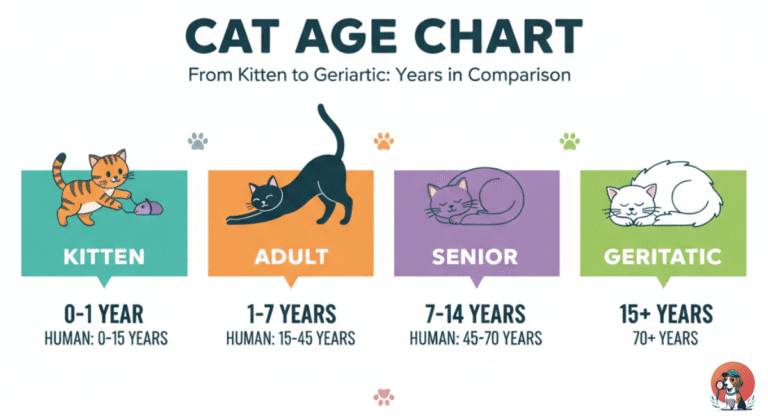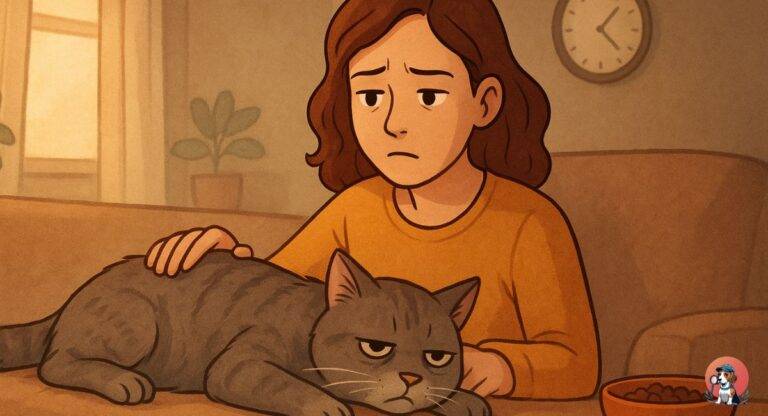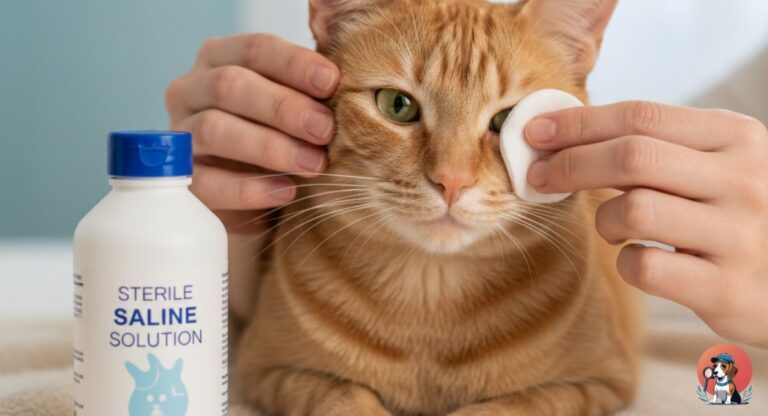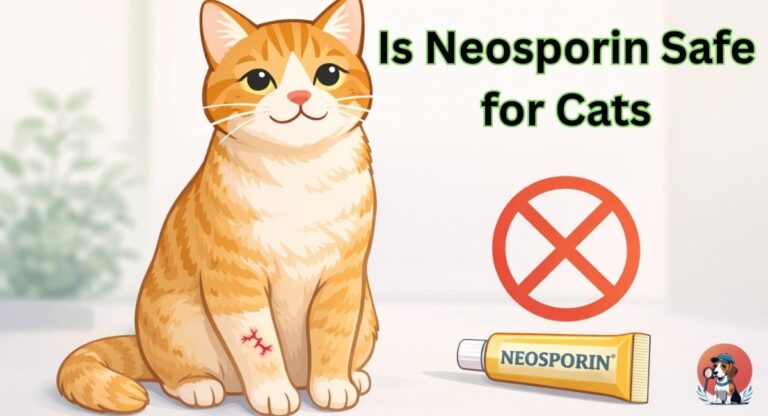Can indoor cats get depressed? Yes, although we would like to think that our feline companions are always happy, they are capable of feeling emotions similar to ours, such as depression. A cat’s melancholy can be caused by a variety of factors. Cats are not always solitary creatures that thrive in solitude. When deprived of physical affection and interaction, certain cats may feel sad.
This is especially important when looking at whether indoor cats can get depressed. Their environment may provide fewer mental and physical stimulations than outdoor cats.
It is important to recognize the warning signs in order to determine if your cat has emotional distress. This will help you take the right steps. Can indoor cats get depressed? Your indoor cat may be suffering from depression if it shows behavioral changes, such as sleeping more during the day or having difficulty maintaining a normal sleep pattern at night. Continue reading this article to learn more about feline depression.
Can indoor cats get depressed?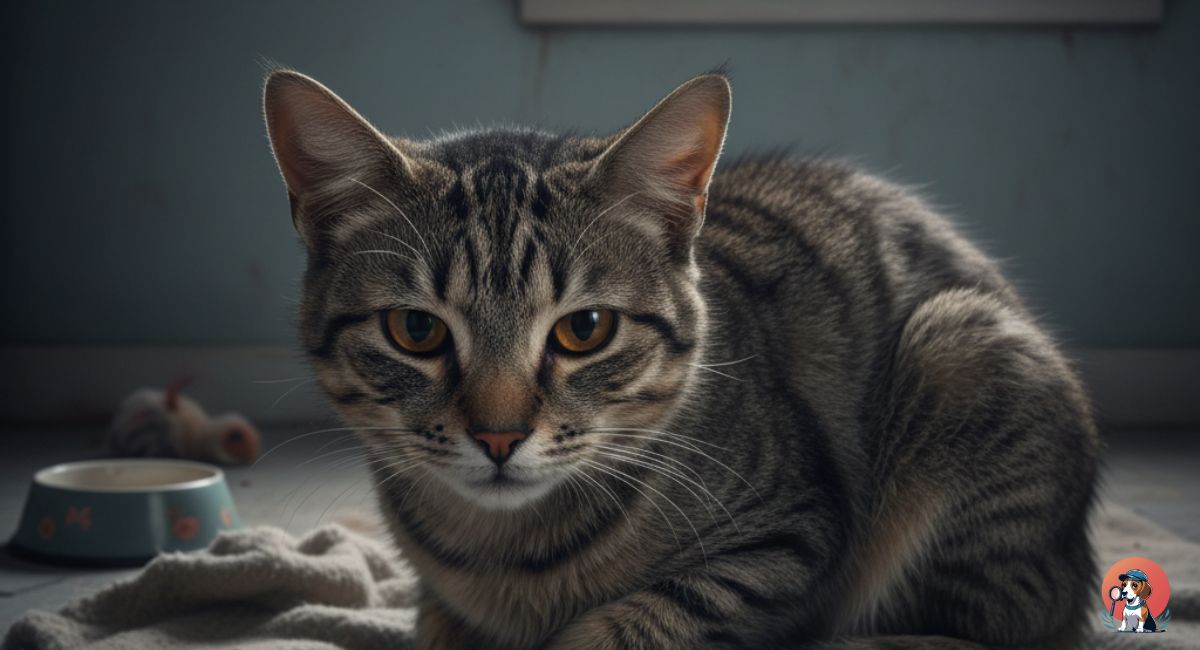
Can indoor cats get depressed? Yes, they can. It’s easier to tell if a cat is depressed if you see it more frequently throughout the day. It’s also important to know that outdoor cats are susceptible to depression. However, the signs might be more subtle because they spend so much time away from their home.
Remember that depression is a mental state that manifests itself in a general decrease in activity. Your cat no longer engages in the activities that they used to enjoy and is sleeping more. Instead of exploring your yard or the neighborhood, your cat may choose to stay in a certain area or not go outside at all.
Do Cats Get Depressed?
Can indoor cats get depressed? Yes, indoor cats can get depressed. Although they express these emotions differently from humans, cats can experience similar emotional states to us, such as fear, sadness, and joy. What can I give my cat to sleep at night? If your cat begins to withdraw from activities, loses interest in their favorite toy, or spends more time sleeping than usual, this could be a sign of depression.
Cat depression after getting a new kitten
Can indoor cats get depressed? Yes, and the introduction of a new kitten to their environment is a major cause. Your existing cat can experience anxiety, depression, and other behavioral issues when a new feline joins the family.
The social preferences of cats are different from those of dogs. The majority of felines are not naturally social animals. This means that they will view a newcomer more as a trespasser than a possible companion. Can indoor cats get depressed? Yes, although your cat may eventually learn to accept the new pet or at least coexist in peace, it is important to realize that this period of transition can be overwhelming for your original animal.
There are many strategies that you can use to reduce the stress associated with bringing a kitten or cat home.
Start the process by confining your new arrival to a specific room. This allows the newcomer to adjust to their surroundings while giving your resident cat a chance to detect their scent without direct contact. Can indoor cats get depressed? Yes, it is possible to familiarize the cats’ scents by swapping blankets and bedding.
You can slowly expand your kitten’s access to new areas once they feel comfortable. However, it is important to never force interaction between cats. Instead, allow them to keep as much separation as possible based on their comfort level.
Ensure that there are convenient escape routes for both cats.
Can indoor cats get depressed? You should always provide at least one extra item for each essential resource, regardless of the number of cats that you have. If you have two cats at home, then you need to provide three litter boxes as well as three different feeding stations and water dishes. This abundance reduces territorial tensions and helps prevent depressive episodes.
Make sure your cat’s favorite resting places and locations are not contested by others. Maintain the same level and quality of time that you have always shared with them.
Can indoor cats get depressed? Yes, consider Feliway Friends. This synthetic facial pheromone has been proven to be effective at enhancing the relationship between cats and minimizing aggressive encounters.
Signs of depression in cats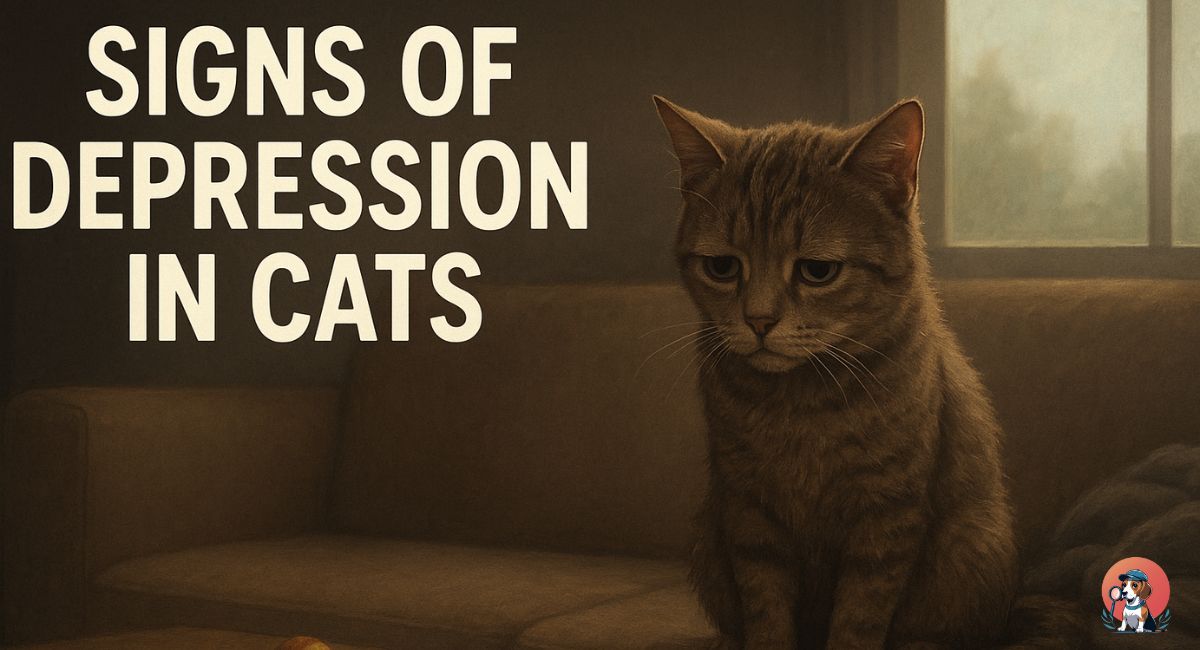
If you can detect behavioral changes in your cat early, it will help you to quickly restore the normal temperament. Some changes in your cat’s behavior will be obvious, but others may require more careful observation. Can indoor cats get depressed? Many pet owners wonder about this question. Understanding the signs will help you to better care for your cat.
Watch for these changes in behavior to help you recognize feline depression.
- Alteration of rest cycles (extended sleep duration or restlessness, difficulty relaxing).
- Poor grooming habits and obsessive maintenance of the claws
- Disinterested in toys and other playful activities
- Spending more time outside the home
- Different eating habits
- Unusual dependence or withdrawal and lack of engagement
- Unexpected hostile displays
Increased Scratching Behavior:
Scratching serves many purposes for cats, including keeping claws healthy. This behavior is important for territorial communication, as it releases pheromones that are released from the glands on their paw pads. Can indoor cats get depressed? Yes, this scent-marking helps cats to establish their territory and feel secure in their surroundings.
If your cat is scratching more frequently, this could be a sign of stress or emotional distress. Can indoor cats get depressed? Yes, they can be. Increased scratching is often an indicator of psychological distress in cats who live indoors.
Alternate Eating Patterns:
Depression in cats is often manifested by changes in the way they relate to food. Your cat may start eating more than usual or show a diminished interest in food. In severe cases, your cat may refuse to eat, resulting in noticeable weight loss. Remember that changes in appetite can be caused by underlying medical conditions. A veterinary exam is essential if you notice any changes in the consumption or hydration of your cat. Can indoor cats get depressed? Changes in eating habits are one of the most common symptoms.
Vocalization Changes:
Changes in the vocal pattern of certain cats can be very telling. These changes are worth noticing when your normally chatty companion suddenly becomes talkative or your usually silent cat goes quiet. The vocal output of a cat with depression can increase or decrease depending on the individual’s temperament and previous expression. Understanding Can indoor cats can get depression will help you identify vocal changes as emotional cries.
Body language:
Your cat’s physical appearance can provide important clues about their emotional health. Your cat’s demeanor during happy moments is familiar to you. Any deviation from that behavior signals something’s wrong. You can look for signs such as a lowered posture, sneaky movements or furtive ones, reluctance to explore or jump, odd tail positioning, and altered rubbing against people or things (whether it is more or less than usual). All these behaviors may reflect anxiety, stress, or depression. Can indoor cats get depressed? Yes, they can. Their body language is often the first thing to tell you what their feelings are.
Understanding your cat’s body language and baseline behavior is important. Can indoor cats get depressed? Yes, this familiarity will allow you to instantly spot any changes in their mental state.
Changes in Grooming:
Cats are known for their meticulous cleanliness. Any lapse in grooming can indicate a low mood, anxiety, or stress. Depression can lead cats to neglect their coats and look disheveled. Can indoor cats get depressed? Yes. Neglected grooming is often one of the first symptoms. Remember that a behavior change can indicate physical discomfort or illness.
Aggression:
Cats often react aggressively and more negatively when they are experiencing depression, anxiety, or stress. This increased aggression can manifest as biting, scratching, and threatening vocalizations such as growls or hisses. Can indoor cats get depressed? Yes, they can be. Aggressive outbursts and growls are common symptoms of depression in cats.
Playing with a lack of interest:
If a cat that is usually active and playful suddenly seems to be uninterested in its favorite toys or games, or if you notice a drop in activity levels, depression or emotional flatness may be at fault. Can cats indoors get depressed? Decreased playfulness is one of the most obvious signs of feline depression.
If your cat is normally outside, but suddenly spends a lot more time outside – or stops going outdoors completely – it may be suffering from depression. Can cats indoors get depressed? Absolutely, and their territorial behavior can reveal important clues to their mental state.
What Are the Causes of Depression in Cats?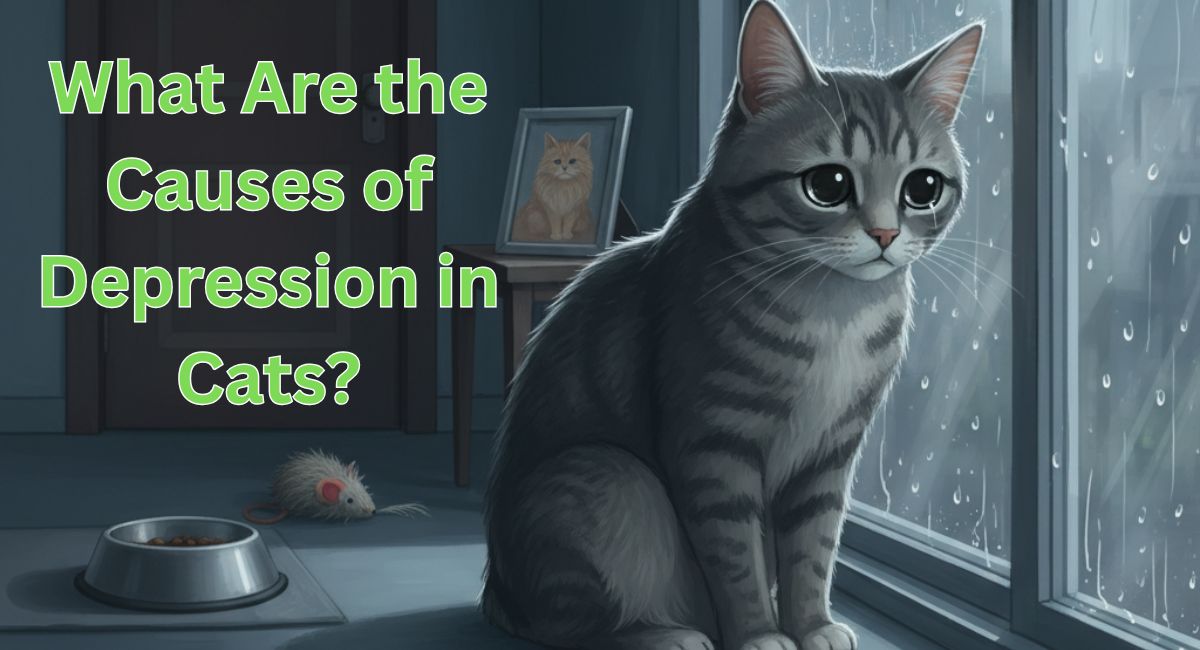
Can indoor cats get depressed? Yes, they can. Depression in cats can be caused by a variety of triggers. These include environmental changes, underlying health issues, or emotional turmoil. Cat owners can identify depressive symptoms earlier by recognizing these triggers. Here are the main factors that cause feline depression.
Environmental disruptions- Cats love predictability and familiarity. Moving to a new house, renovating your home, or even rearranging the furniture can cause emotional distress and shake your cat’s sense of security.
Changes in social dynamics- The introduction of a new member to the family, the loss of a familiar person, or bringing a pet home can upset a cat’s balance and lead to feelings such as sadness and withdrawal.
Routine Alterations – Cats are routine-oriented creatures. Changes in mealtimes, work schedules that impact when you are home, or any other disruptions of their daily routine can cause emotional upset and require long adjustment periods.
Losing someone you love- Cats develop strong attachments to their family members and animal companions. The grief they feel can lead to depression and affect their behavior.
Lack of mental stimulation- Cats have natural hunting instincts, and they are curious about their environment. Can indoor cats get depressed? Yes, indoor cats can become depressed when they lack playtime, interactive toys, or environmental enrichment.
Physical discomfort- Conditions such as arthritis or physical injuries can cause pain or distress. When cats are feeling unwell or in discomfort, their emotional condition often worsens along with their physical condition.
Anxiety caused by prolonged isolation- Cats can develop separation anxiety if they are left alone for long periods of time. If this is not addressed, it may lead to depression.
Common Cat Depression Issues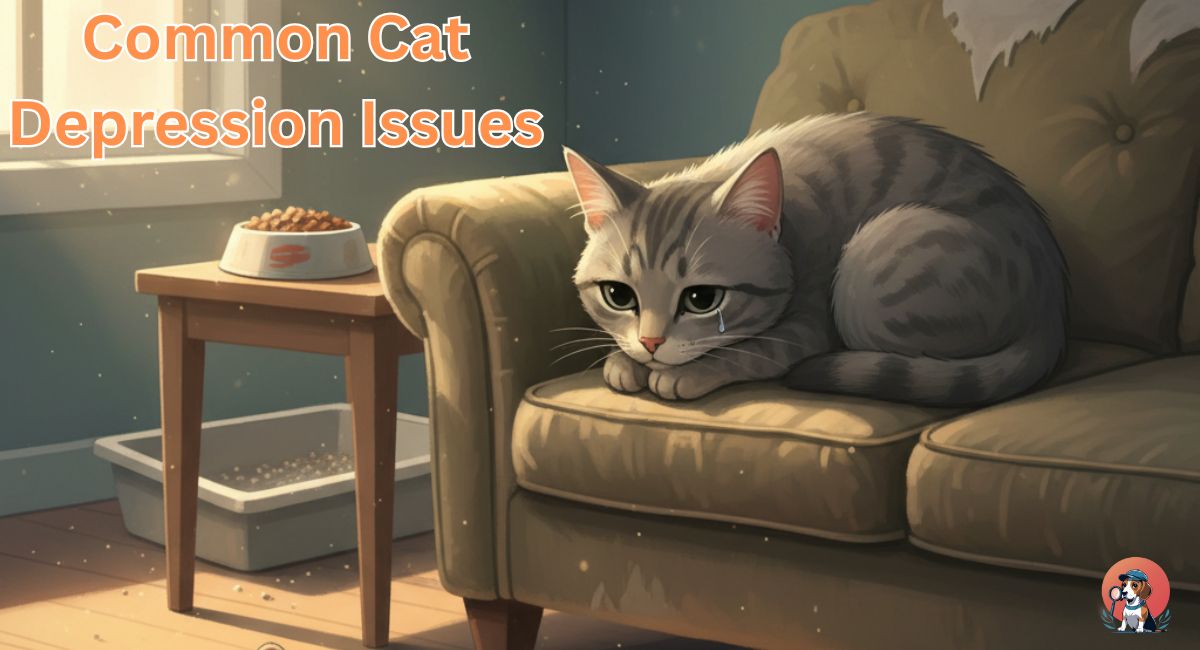
Can indoor cats get depressed? Absolutely. Depression in cats can be caused by many things, so it’s important to identify the cause. Physical pain or medical conditions that are underlying can have a dramatic impact on your cat’s behavior. If you notice your cat acting strangely sad, or withdrawing without a clear explanation, a veterinary exam should be the first thing to do.
Cats are more sensitive to environmental changes than people think. Street cats that move indoors may struggle to adjust, as they feel trapped. Cats that move between homes, whether through rescue adoption or rehoming, often feel sad about losing their routine and familiar territory. Don’t underestimate the emotional bonds that cats can form. Can indoor cats get depressed? Yes, Cats can be in genuine grief when they lose a human or furry companion (whether canine or feline).
Another common trigger is the sudden loss of outdoor privileges. Sudden loss of outdoor privileges. The sudden loss of outdoor privileges.
How to Help a Depressed Cat
Can indoor cats get depressed? Yes, they can. If your feline companion is down, even after you have addressed any injuries or health issues, you are probably looking for ways to improve their mood. There are many ways to bring a sad cat back to life.
- Spend time with your cat every day. You can make your cat feel loved and content by stroking them, cuddling them in your lap, talking to them gently, or simply watching their playful behavior.
- To prevent your cat from becoming bored with a single item, offer a variety and change them regularly. Many cats love to jump and chase a “cat-dancer”, which is a ribbon or feather attached to a wand. You can wave the wand around to get your cat to pounce.
- You can also give your cat some treats every day, in addition to providing a healthy diet and drinking clean water. Your cat will enjoy the anticipation of a treat. Can indoor cats get depressed? Yes, the majority of cats will quickly learn when snack time is and will run over to the treat if it’s presented at a consistent hour every day.
- Consider carefully if you want to bring home another pet for your cat. Some cats are happy to be the only pet in the home, while others enjoy playing and snuggling with another cat or canine. Before adopting another pet, consider your cat’s age, personality, health, and energy.
- Position a birdfeeder outside a window where your cat can easily observe it. You and your cat will both enjoy watching the wild birds come to your feeding station. Their activity will provide your cat with mental stimulation and excitement.
- Look into calming products. Some supplements have natural calming effects on cats. Feliway and other pheromone sprays or devices emit soothing messages for cats. Can indoor cats get depressed? Yes, if your cat’s sadness continues, seek professional help. Your vet can refer you to a certified animal behaviorist or veterinary behaviorist who can identify the cause of your cat’s sadness.
How to make your depressed cat happy?
You might be wondering: Can indoor cats become depressed? Yes, they can, and there are many effective ways to lift their spirits and restore happiness.
Scheduling a vet appointment is the first and most crucial step. Many of the behavioral signs in cats that may suggest depression or low spirits are actually symptoms of physical pain or medical conditions. Your veterinarian can perform a thorough exam to eliminate any health-related reasons for these behavioral changes. Before making any changes, you must first get medical clearance.
As soon as your veterinarian certifies that your cat is in good physical health, you can start making changes to improve their emotional well-being and mood.
Outlets for instinctive behaviors:
Inability to engage in instinctive, natural behaviors is the number one cause of cats experiencing low moods, stress, or showing signs similar to depression. Can indoor cats get depressed? If they are unable to fulfill their innate needs? This is true, especially for cats that live solely indoors.
Consider what cats do naturally – they jump into the air, climb tall structures, creep toward targets, sprint towards moving objects, catch prey, and spring onto their captures. They look for high-up observation points from which they can protect their territory and watch over it. Can indoor cats get depressed? Yes, they also search out secret nooks to rest in peace without being observed. Each of these activities is vital to maintaining their mental and physical health.
We accept responsibility for allowing cats to express their natural behavior when we make them a part of our household and daily life.
Can indoor cats get depressed? Yes, You can provide your cat with items like: cat trees, climbing towers, and toys that they can chase, attack, and stalk (some are battery-operated and designed for independent play, while others allow for interactive play between you and your pet); food puzzles and treat dispensers; cat caves and sleeping pouches or simple cardboard boxes to hide in. There are many options. You can experiment and observe to find out what your cat enjoys.
Cat owners will also enjoy these enrichment items. They are essential for cats that live indoors, as they cannot fulfill their behavioral needs by exploring the outdoors.
Social Interaction, Affection, and Affection:
Every cat is unique when it comes to their personality and preferences. Some cats love to be held, sit in your lap, and receive unlimited petting and strokes. Some cats are happy with moderate attention, but prefer to go off and have some’me-time’. Some cats are more comfortable with you being nearby, while others prefer to be left alone. Can indoor cats get depressed? Yes, you can ensure that you are meeting your cat’s individual social needs by allowing them to initiate and control these interactions.
Play Time that is Regular and Engaging:
Toys and games that involve chasing and hunting will help keep cats active, occupied, and reduce behavioral issues, especially in breeds with strong predatory and hunting instincts. These sessions are also great for strengthening the bond between you and your pet.
Can indoor cats get depressed? Yes, you might want to include catnip in your playtime if you know that your cat responds well to it. Catnip has a calming effect on cats, which is why it’s widely used. This plant belongs to the mint family, and it contains an oil called nepetalactone. This oil is released when cats chew or brush on catnip. It triggers an euphoric natural state. The experience is temporary and safe. Cats enjoy it. Catnip is especially beneficial to cats who are depressed or anxious, as it can calm and soothe their mood.
Safe spaces and retreats:
No matter how social or friendly your cat is, it needs time to itself. Can indoor cats get depressed? Yes, if they don’t have their own private space? They can. They need a place to retreat that is safe and quiet, where they can relax, groom themselves, or nap. Most importantly, they must be able to do this without being watched or monitored by others if they live with other cats. If cats do not have safe places to retreat, they may develop anxiety, depression, or stress. Try experimenting with various types of spaces. Each cat has different preferences. Some prefer to have their safe space at an elevated level, while others prefer cave-like enclosed spaces. Others want to be close to the family, whereas others require complete solitude and peace.
Optimizing your Living Environment:
Always place food bowls and water bowls in areas where your cat will be able to reach them without any obstacles. You don’t want your cat to have to cross through an area with other cats, children, dogs, and even children to get to their food or water.
Reducing and Eliminating Stress Factors:
Make sure that everyone in your family is practicing cat-friendly behavior and interactions. People handling cats roughly, dogs chasing around the house, and children repeatedly picking them up against their wishes are all behaviors that can lead to anxiety and depression.
Can indoor cats get depressed in different ways? Yes. These symptoms can be displayed in a variety of ways by cats with behavioral problems like depression, or they may not show any signs at all. You can detect even the slightest changes in your cat’s behavior by keeping a close eye on their overall behavior. Remember that sometimes, changes in behavior are due to underlying medical conditions. If you notice any shifts in the behavior of your cat, contact your veterinarian immediately for medical advice.
Can indoor cats get depressed? Yes, Cats may become depressed for many reasons, including illness and disease or significant environmental changes. But by monitoring their behavior, you can ensure that they remain happy and healthy.
Professional cat behaviorists are also available. Most people think of animal behaviorists as being associated with canines and dogs. Can indoor cats get depressed? Yes, you can consult a feline behaviorist if your veterinarian examined your cat and gave them a clean bill of wellness, but you are still unable to identify the cause or resolve the problem.
FAQs
Q:1 Can indoor cats get depressed?
Not only indoor cats, but all cats can be depressed. Cat depression is not usually caused by cats being indoors. Cats can also become depressed when their basic needs are not met, such as companionship, food, water, and mental and physical stimulation.
Q:2 How can I make my cat happy?
You need to spend time with your cat to learn about its unique physical, mental, and social needs. You can make your cat happy by providing it with space to play, a safe place to hide and sleep, tasty treats, clean water and litter trays, affection and companionship, and engaging in playful interactions.
Q:3 What factors influence the duration of depression in cats?
Depression in cats can last for a long time, depending on the severity of the depression, the effectiveness, and the temperament of the cat. Many cats will improve in a few weeks with the right care and environment adjustments.
Q:4 How can I tell if my cat is depressed?
Changes in behavior can be an indication of depression in cats. Depression in cats can be indicated by decreased activity, sleepiness, lack of interest in people, and apathy towards grooming or cleaning.
Q:5 How can I get a depressed cat to eat?
Try some new, delicious treats to get your cat to eat again if they are depressed.

